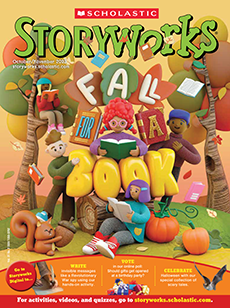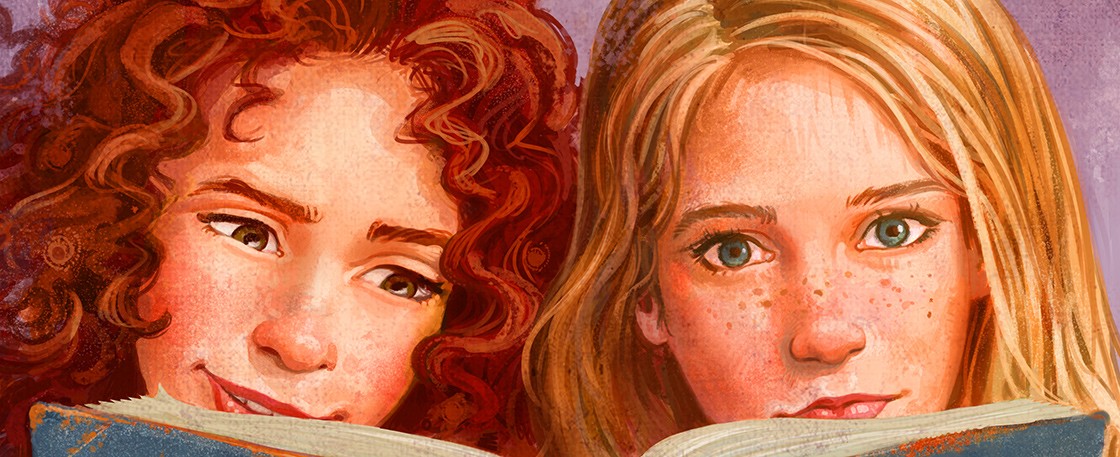Miss Benson was my good deed for the summer. Every girl in my scout troop was assigned someone. My friend Melody got Mr. Stengle, the oldest resident of the River Nursing Home. Anne got Mrs. Muhlenberg, who has four children and always seems overwhelmed.
I was assigned Miss Benson. Miss Benson is blind.
I’d never met a blind person before. The thought of talking to Miss Benson scared me. But I couldn’t let Melody and Anne get more badges than me.
“She’s a retired teacher,” our scout leader said. “I’ll bet she’d just love it if you’d read to her.”
So the next day I called Miss Benson, and then I set out to meet her.
As I stood in front of her apartment door, pausing before I knocked, this girl stuck her head out of the door across the hall.
“What do you want?” she said.
“I’m visiting Miss Benson,” I told her, which was perfectly obvious.
The girl had long reddish-brown hair. It was a tangled mess.
“Why are you visiting her?” she wanted to know.
It would have sounded dumb to say, “I’m a Girl Scout, and she’s my good deed for the summer.” So I said, “To read to her.”
Behind the girl, from inside her apartment, a whole lot of noise was going on. Two little boys ran behind her. Their hair wasn’t combed either, and their noses were snotty.
“I’ll come with you,” the girl said.
I didn’t know whether to be annoyed at her for being so pushy or relieved that I didn’t have to go in alone.
Did a good deed count if you had help?


